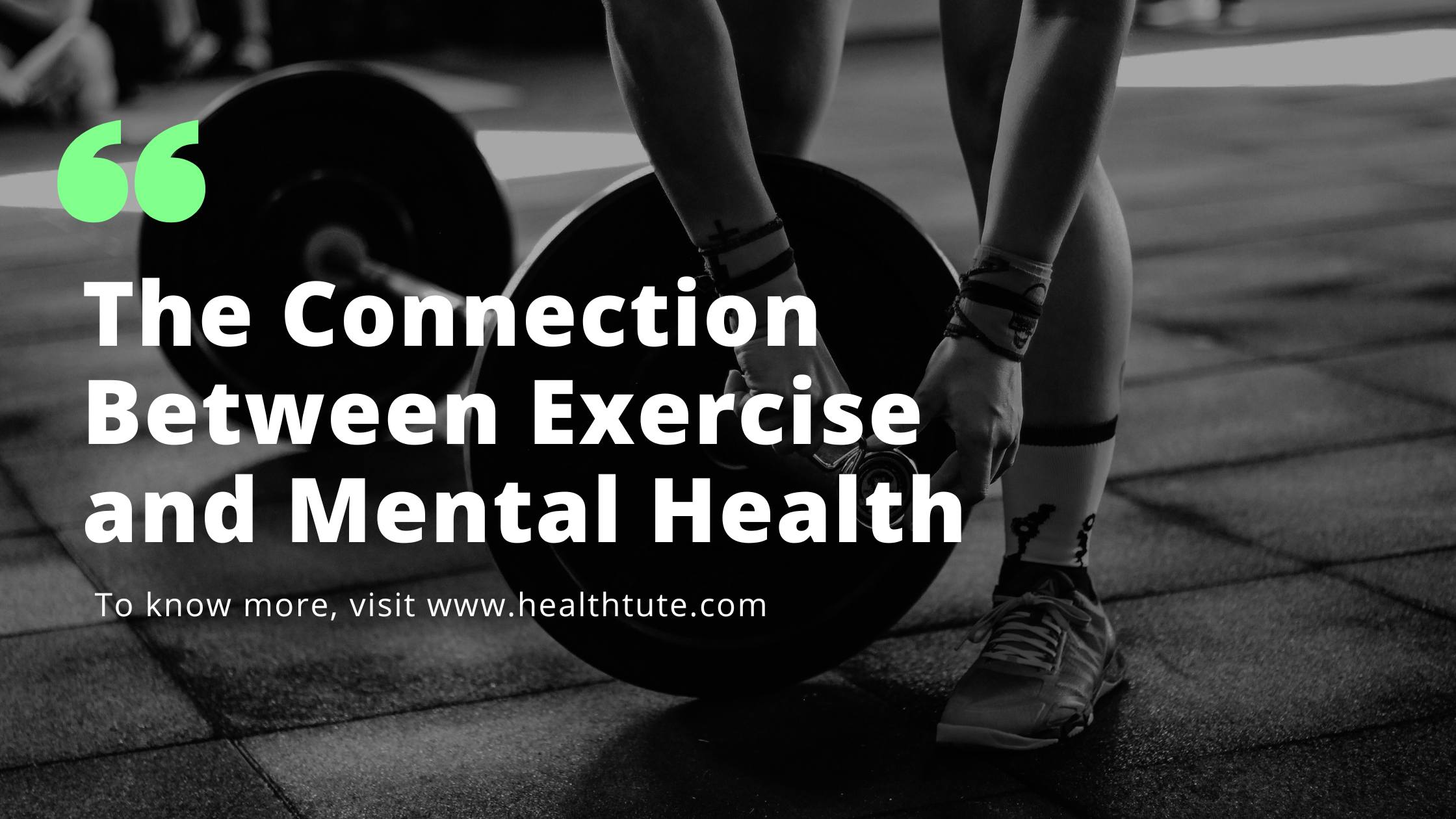In today’s fast-paced world, the importance of mental health cannot be overstated. As we navigate the challenges of modern life, it is crucial to find effective ways to promote emotional well-being. One such powerful method is exercise. Yes, you heard it right – exercise and mental health are deeply connected. In this article, we will delve into the fascinating relationship between physical activity and mental well-being, exploring the numerous benefits that exercise can have on our minds. So, let’s lace up our shoes and dive into this exciting journey of understanding how exercise can uplift our spirits and contribute to a happier, healthier life.
The Connection Between Exercise and Mental Health
Exercise has long been celebrated for its positive impact on physical health, but its effects on mental health are just as remarkable. Lacing up those running shoes, hitting the gym, or engaging in any form of physical activity can do wonders for our minds. Let’s explore some of the key aspects of this connection:
1. Reducing Stress and Anxiety
Exercise is a natural stress-buster. When we engage in physical activity, our brain releases endorphins, often referred to as “feel-good” hormones. These chemicals act as natural mood lifters, reducing stress and anxiety levels. Whether it’s a leisurely stroll in the park or a high-intensity workout, the release of endorphins during exercise can bring about a sense of calm and relaxation, helping us better cope with the challenges life throws at us.
2. Improving Mood and Happiness
Regular exercise has been linked to improved mood and increased feelings of happiness. When we work out, our brain also releases serotonin, a neurotransmitter associated with feelings of joy and well-being. Incorporating exercise into our daily routine can be an effective way to combat feelings of sadness and low mood, leaving us with a more positive outlook on life.
3. Boosting Cognitive Function
Physical activity not only benefits our emotional well-being but also enhances cognitive function. Studies have shown that exercise can improve memory, focus, and overall cognitive performance. When we exercise, blood flow to the brain increases, delivering oxygen and essential nutrients, which support brain health and function.
4. Enhancing Self-Esteem and Body Image
Engaging in regular exercise can have a profound impact on our self-esteem and body image. As we achieve fitness goals and witness the positive changes in our bodies, we develop a sense of accomplishment and pride. This newfound confidence can significantly boost our self-esteem and promote a healthier body image.
5. Better Sleep Patterns
Do you struggle with sleepless nights? Exercise might be the solution. Physical activity has been shown to improve sleep quality and help with insomnia. By expending energy during exercise, our bodies are more prepared for rest, leading to a more restful and rejuvenating night’s sleep.
6. Stress-Relief Strategies Through Exercise
To combat stress and promote mental well-being, consider incorporating some of these stress-relief strategies through exercise:
- Yoga and Meditation: These mindful practices combine physical movements with deep breathing and meditation, reducing stress and promoting relaxation.
- Aerobic Exercises: Running, swimming, or cycling are excellent ways to release pent-up stress and experience the euphoria of endorphins.
- Group Activities: Joining group fitness classes or sports can provide social support and help in alleviating stress.
- Nature Walks: Spending time in nature while walking or hiking can have a calming effect, reducing stress and promoting mental clarity.
FAQs About the Connection Between Exercise and Mental Health
1. Can exercise really help with anxiety and depression?
Absolutely! Exercise has been shown to be an effective natural remedy for anxiety and depression. The release of endorphins and serotonin during physical activity helps alleviate symptoms and enhances overall mood.
2. How much exercise do I need to experience mental health benefits?
While any amount of exercise is beneficial, research suggests that engaging in moderate-intensity exercise for at least 30 minutes most days of the week can have significant positive effects on mental health.
3. Are certain exercises better for mental well-being than others?
Different exercises can offer varying mental health benefits. Aerobic exercises are excellent for stress relief, while yoga and meditation can improve mindfulness and reduce anxiety. Choose activities that resonate with you personally.
4. Can exercise be used as a complementary therapy for mental health treatment?
Yes, exercise can be a valuable complementary therapy for mental health treatment. It can enhance the effects of medications or therapy and contribute to an overall healthier lifestyle.
5. Is there a connection between exercise and improved cognitive function?
Indeed! Regular physical activity has been associated with improved cognitive function, including better memory, attention, and problem-solving abilities.
6. How long does it take to experience the mental health benefits of exercise?
Some people may notice immediate mood improvements after exercise, thanks to the release of endorphins. However, for long-term benefits, consistency is key, and regular exercise over time can have a lasting positive impact on mental well-being.
Conclusion
The connection between exercise and mental health is undeniable. Engaging in physical activity not only benefits our physical bodies but also has a profound impact on our emotional well-being. From reducing stress and anxiety to boosting cognitive function and improving self-esteem, exercise offers a holistic approach to mental well-being. So, the next time you feel overwhelmed or down, put on your sneakers and take a brisk walk or engage in your favorite workout routine. Your mind and body will thank you for it.
Remember, taking care of our mental health is just as important as taking care of our physical health. And the best part is that exercise provides a fun and enjoyable way to achieve both!

